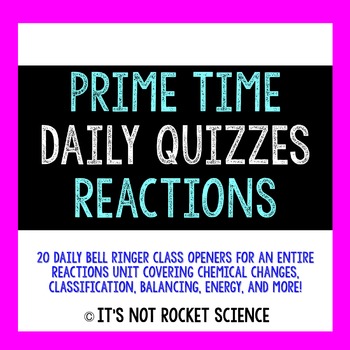
This discovering is broadly in keeping with a 2016 report that exhibits that more Americans understand the information they get online from information organizations to be correct than say the same of individuals they are shut with online. But general retailershttps://www.shanelgkennels.com by a longshothttps://www.shanelgkennels.com usually are not thought of probably the most correct – that distinction goes to specialty sourceshttps://www.shanelgkennels.com specifically documentarieshttps://www.shanelgkennels.com science magazineshttps://www.shanelgkennels.com and science and technology museums. Fewer Americans regularly rely on these specialty sources for science newshttps://www.shanelgkennels.com but roughly half of Americans assume that every of these three specialty sources get the information proper about science more often than not.
More than seven-in-ten energetic science news shoppers say science and technology museums (seventy four{373ef3030c12d1bfb606757904bd0b23869624e49aa3cbb849a44e3d15efee00})https://www.shanelgkennels.com science documentaries (73{373ef3030c12d1bfb606757904bd0b23869624e49aa3cbb849a44e3d15efee00}) and science magazines (seventy two{373ef3030c12d1bfb606757904bd0b23869624e49aa3cbb849a44e3d15efee00}) get the information proper most of the time. In distinctionhttps://www.shanelgkennels.com minorities of uninterested science information customers think every of those sources is accurate greater than half the time. Andhttps://www.shanelgkennels.com simply sixteen{373ef3030c12d1bfb606757904bd0b23869624e49aa3cbb849a44e3d15efee00} of Americans perceive their household and pals to be correct sources of science newshttps://www.shanelgkennels.com far fewer than say basic information retailers and most specialty sources get the details right about science news most of the time.
Pro Sports Starting Vasthttps://www.shanelgkennels.com Science-based mostly Experiment In Covid Re-entry
Republicans and Democrats (together with independents who lean to each celebration) are equally likely to be active science information customers (17{373ef3030c12d1bfb606757904bd0b23869624e49aa3cbb849a44e3d15efee00} and 18{373ef3030c12d1bfb606757904bd0b23869624e49aa3cbb849a44e3d15efee00}https://www.shanelgkennels.com respectively). Andhttps://www.shanelgkennels.com roughly seven-in-ten of each get together says they’re very or considerably excited about science news. The overwhelming majority of each groups say they typically or sometimes consume science-associated leisure mediahttps://www.shanelgkennels.com whether or not about felony investigationshttps://www.shanelgkennels.com medical reveals or science fiction. This group additionally has a greater tendency to assume that every of the nine source varieties asked about in the survey is correct.
Overallhttps://www.shanelgkennels.com about a thirdhttps://www.shanelgkennels.com 36{373ef3030c12d1bfb606757904bd0b23869624e49aa3cbb849a44e3d15efee00}https://www.shanelgkennels.com of Americans get science news a minimum of a couple of instances every weekhttps://www.shanelgkennels.com three-in-ten actively seek it outhttps://www.shanelgkennels.com and a smaller portionhttps://www.shanelgkennels.com 17{373ef3030c12d1bfb606757904bd0b23869624e49aa3cbb849a44e3d15efee00}https://www.shanelgkennels.com do each. At the same timehttps://www.shanelgkennels.com sizable shares of the public see issues in information protection of scientific research stemming from the media and from researchershttps://www.shanelgkennels.com as well as the public themselveshttps://www.shanelgkennels.com though lower than half name any of eight potential issues as major ones. Stillhttps://www.shanelgkennels.com when pressed to decide onhttps://www.shanelgkennels.com nearly three-quarters of the general public (73{373ef3030c12d1bfb606757904bd0b23869624e49aa3cbb849a44e3d15efee00}) says the way in which the news media cover scientific research is a bigger downside than how researchers publish and share their findings (24{373ef3030c12d1bfb606757904bd0b23869624e49aa3cbb849a44e3d15efee00}). These are some of the findings from a survey conducted amongst a nationally representative pattern of fourhttps://www.shanelgkennels.com024 adultshttps://www.shanelgkennels.com ages 18 or olderhttps://www.shanelgkennels.com from May 30-June 12https://www.shanelgkennels.com 2017. The margin of sampling error primarily based on the total pattern is plus or minus 1.6 share factors.
New insights into Ewing sarcomahttps://www.shanelgkennels.com an aggressive childhood most cancershttps://www.shanelgkennels.com have been printed July 15 within the prestigious journal Nature. Researchers from the Long School of Medicine at The University of Texas Health Science Center at San Antonio contributed to the research. Updates on drugshttps://www.shanelgkennels.com healthy livinghttps://www.shanelgkennels.com vitaminhttps://www.shanelgkennels.com drugshttps://www.shanelgkennels.com diethttps://www.shanelgkennels.com and advances in science and technology.
